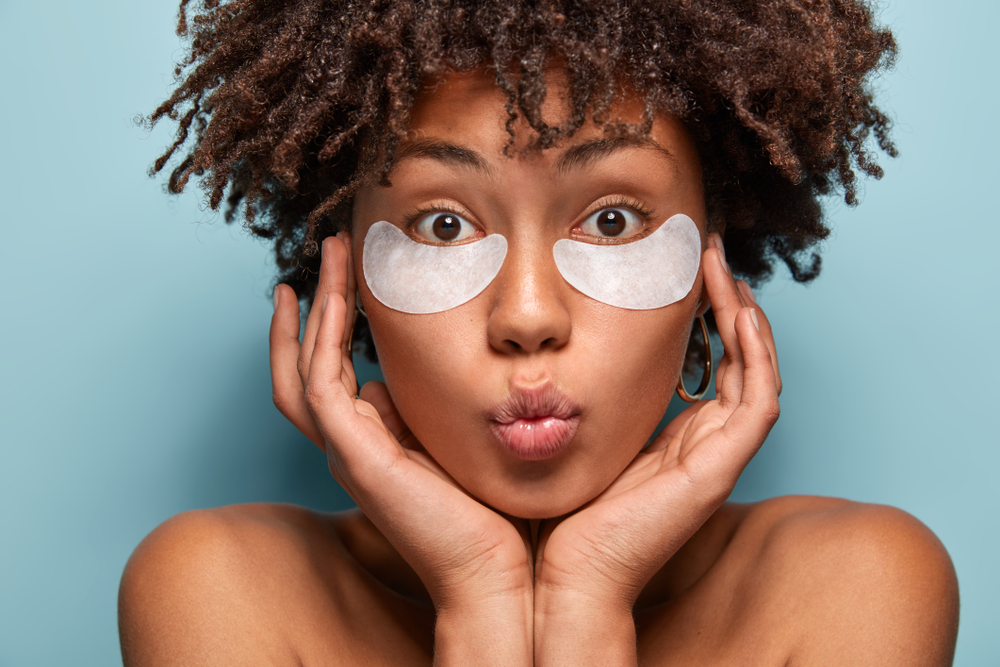The mirror doesn’t lie. After a sleepless night, your eyes tell the story before you even speak. Those telltale bags and swollen lids serve as an unwelcome advertisement of your fatigue, transforming your face into a billboard of exhaustion that colleagues, friends and strangers can read from across the room.
But puffy eyes represent more than a cosmetic inconvenience. They offer a window into the complex physiological processes that unfold when sleep deprivation disrupts your body’s delicate systems. Understanding why your eyes swell when you’re tired reveals insights into circulation, hormone production and cellular repair mechanisms that extend far beyond vanity concerns.
Sleep researchers and dermatologists have identified four primary mechanisms that contribute to the characteristic puffiness around tired eyes. Each process reflects how inadequate rest cascades through interconnected bodily systems, creating visible evidence of internal dysfunction.
Disrupted fluid regulation wreaks havoc
Your body operates as a sophisticated hydraulic system, carefully balancing fluid distribution throughout tissues and organs. During normal sleep cycles, this system recalibrates, moving accumulated fluids away from areas where they’ve pooled during upright daytime hours.
The horizontal position you maintain while sleeping naturally encourages fluid to collect beneath your eyes due to gravity’s influence. In well-rested individuals, the body efficiently redistributes this fluid upon waking, quickly restoring normal contours to the face.
Sleep deprivation disrupts this finely tuned process. Without adequate rest, your lymphatic system struggles to drain excess fluid effectively. The result is persistent swelling in the delicate tissues surrounding your eyes, where skin is thinnest and most susceptible to showing fluid retention.
This mechanism explains why puffy eyes often appear worse immediately upon waking after poor sleep. Your body simply hasn’t had sufficient time or energy to complete its overnight maintenance routines.
Impaired circulation creates pooling problems
Fatigue doesn’t merely affect your energy levels—it fundamentally alters your cardiovascular function. Sleep deprivation reduces overall circulation efficiency, causing blood flow to slow throughout your body.
The area around your eyes becomes particularly vulnerable to these circulation changes. Reduced blood flow allows blood to pool in the tiny vessels beneath your lower lids, contributing to both puffiness and the dark circles that often accompany tired eyes.
This pooling effect becomes compounded by the fact that the skin around your eyes contains some of the thinnest tissue on your body. Any changes in blood flow or fluid retention become immediately visible in this translucent area, creating the characteristic appearance of exhaustion.
Poor circulation also impairs the delivery of oxygen and nutrients to eye area tissues while simultaneously reducing the removal of metabolic waste products. This creates an environment where swelling persists longer than it would under normal circulation conditions.
Weakened tissue structure loses resilience
Sleep serves as your body’s primary repair period, when cellular regeneration and tissue maintenance occur most actively. During deep sleep phases, your body produces growth hormone and other compounds essential for maintaining skin elasticity and muscle tone.
Chronic sleep deprivation interferes with these repair processes, gradually weakening the structural integrity of tissues around your eyes. The muscles that normally help maintain taut skin lose their tone, while the skin itself becomes less elastic and more prone to sagging.
This weakening creates a perfect storm for puffiness. As tissues lose their ability to bounce back from fluid accumulation, swelling becomes more pronounced and persistent. What might have resolved quickly in well-rested tissue now lingers throughout the day.
The cumulative effect of repeated sleep deprivation can lead to more permanent changes in eye area structure. Over time, consistently tired individuals may notice that their eye puffiness becomes harder to resolve, even with adequate rest.
Stress hormones fuel inflammation
Sleep deprivation triggers a cascade of hormonal changes that extend throughout your endocrine system. Among the most significant alterations is increased production of cortisol, commonly known as the stress hormone.
Elevated cortisol levels promote inflammation throughout your body, but this effect becomes particularly noticeable in areas where skin is thin and sensitive. The tissues around your eyes respond to cortisol-induced inflammation by swelling, creating the puffy appearance associated with exhaustion.
This hormonal disruption creates a vicious cycle. Poor sleep increases cortisol production, which promotes inflammation and interferes with quality sleep, leading to further cortisol elevation. Breaking this cycle requires consistent sleep hygiene and stress management strategies.
Research has shown that even a single night of poor sleep can elevate cortisol levels for several days, explaining why the effects of sleep deprivation on eye appearance can persist even after catching up on rest.
Practical solutions for prevention and treatment
While understanding the mechanisms behind puffy tired eyes provides valuable insight, practical solutions offer immediate relief and long-term prevention strategies.
Immediate relief techniques focus on counteracting the physiological processes causing swelling. Cold therapy remains one of the most effective short-term solutions. Applying chilled spoons, gel masks or cold compresses constricts blood vessels and promotes fluid drainage.
Hydration paradoxically helps despite seeming counterintuitive. When properly hydrated, your body doesn’t hoard fluids in tissues. Dehydration triggers fluid retention as your body attempts to conserve available water supplies.
Sleep position modifications can prevent overnight fluid accumulation. Elevating your head slightly while sleeping encourages gravity to work in your favor, preventing fluid from pooling beneath your eyes during rest periods.
Targeted skincare ingredients can address specific aspects of eye puffiness. Caffeine-containing products constrict blood vessels, while ingredients like hyaluronic acid provide hydration without promoting water retention.
The most effective long-term strategy remains prioritizing consistent, quality sleep. Establishing regular sleep schedules, creating conducive sleep environments and practicing good sleep hygiene address the root causes of tired eye appearance while providing countless additional health benefits.
Your puffy eyes serve as an early warning system, alerting you to the broader health implications of inadequate rest. By responding to these signals appropriately, you protect not only your appearance but your overall well-being.
















